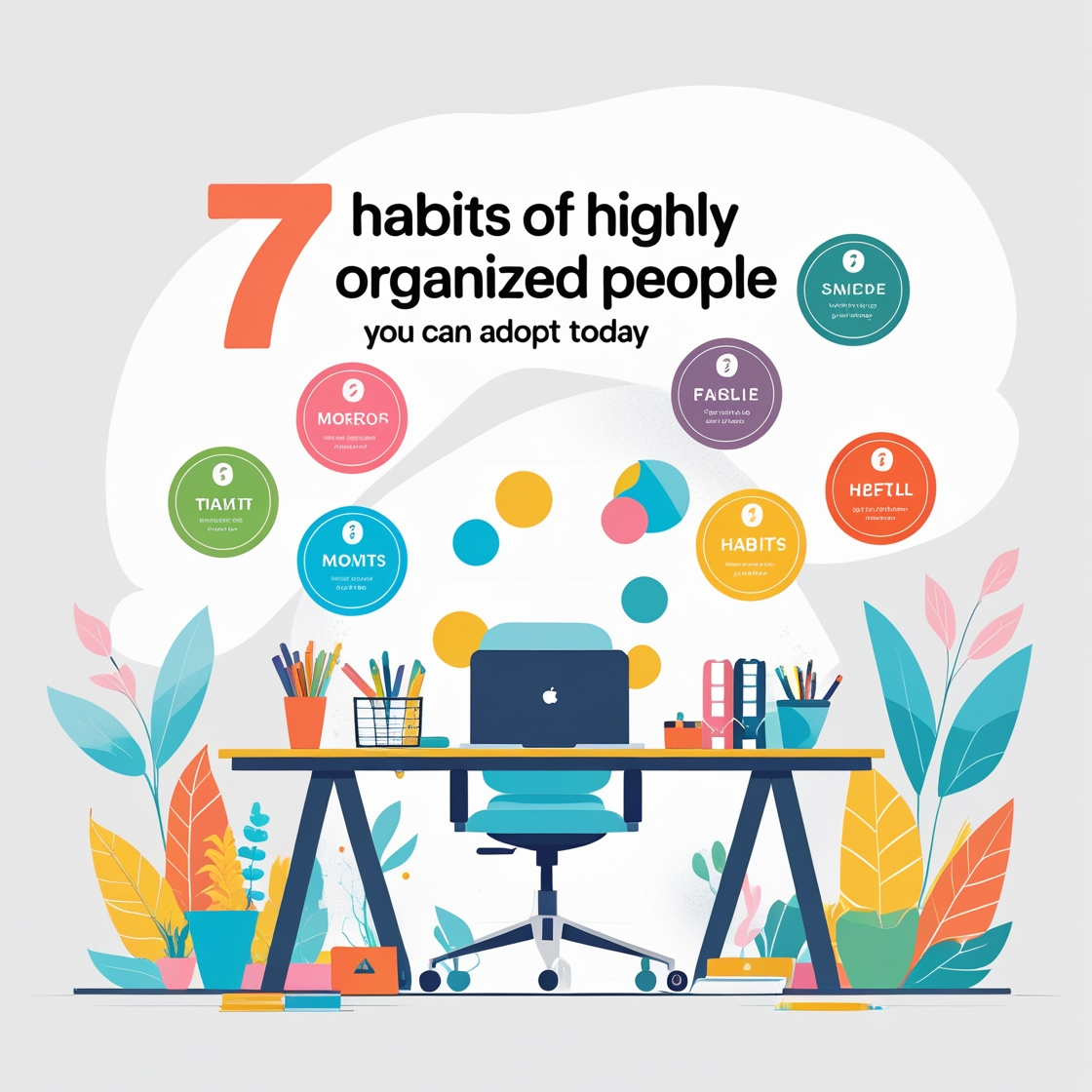Have you ever wondered how some people seem to have everything under control? They never miss deadlines, their spaces are always tidy, and they handle tasks efficiently. The secret lies in their habits. Highly organized people follow daily routines that help them stay productive and stress-free. Let’s explore seven habits you can adopt to become more organized.
Time is a valuable resource, and organized people know how to use it effectively. They prioritize important tasks and avoid wasting time.
1. They Plan Their Day in Advance
Organized people don’t wake up wondering what to do—they already have a plan. By setting clear priorities, they maximize their time and avoid distractions.
How to apply this habit:
- Plan your next day before going to bed.
- Use a planner, to-do list, or calendar to write down important tasks.
- Identify the top three priorities for the day.
Quick Tip: Start each day with a clear goal to stay focused and productive.
2. They Follow a Morning Routine
A structured morning routine sets a positive tone for the rest of the day. Highly organized people use their mornings wisely.
Ideas for a productive morning routine:
- Wake up at a consistent time.
- Exercise or stretch to boost energy.
- Review your schedule and set intentions for the day.
Quick Tip: Avoid checking social media first thing in the morning—it can be a major distraction!
3. They Keep Their Spaces Clutter-Free
A cluttered environment can lead to a cluttered mind. Organized people keep their surroundings neat to maintain focus and efficiency.
How to declutter and stay organized:
- Follow the one-minute rule—if something takes less than a minute to clean up, do it immediately.
- Regularly get rid of items you don’t need.
- Use storage solutions to keep things in their place.
Quick Tip: Spend 5–10 minutes tidying up at the end of each day.
4. They Manage Their Time Wisely
Time management techniques:
- Time blocking – Assign specific time slots for different activities.
- Pomodoro Technique – Work in 25-minute focused sessions with short breaks.
- The 80/20 Rule – Focus on the 20% of tasks that bring 80% of results.
Quick Tip: Track how you spend your time to identify and eliminate inefficiencies.
5. They Use Lists and Digital Tools
Organized people don’t rely on memory alone—they write things down and use tools to stay on top of their tasks.
Best tools for organization:
- Todoist, Notion, or Microsoft To Do – Task management apps.
- Google Calendar – For scheduling meetings and reminders.
- Evernote – For taking notes and storing ideas.
Quick Tip: Always carry a small notebook or use a notes app to jot down ideas.
6. They Say “No” to Unnecessary Commitments
Highly organized people protect their time by setting boundaries. They know that saying yes to everything leads to stress and inefficiency.
How to say no effectively:
- Be polite but firm: “I’d love to help, but I don’t have the time right now.”
- Suggest an alternative: “I can’t do it today, but I’m available next week.”
- Prioritize tasks that align with your goals.
Quick Tip: Before agreeing to something, ask yourself, “Does this align with my priorities?”
7. They Reflect and Improve Continuously
Organized people regularly evaluate their habits and make adjustments to improve efficiency.
How to develop self-reflection:
- Spend 5 minutes at the end of the day reviewing what worked and what didn’t.
- Adjust your routine based on what helps you stay productive.
- Be open to learning new organizational techniques.
Quick Tip: Try a weekly “reset day” to review progress and plan for the next week.
Final Thoughts: Organization Is a Habit, Not a Talent
Becoming more organized is not about perfection—it’s about consistency. By planning your day, following a morning routine, keeping a clutter-free space, managing time wisely, using lists, setting boundaries, and reflecting on progress, you can build habits that will keep your life structured and stress-free.
Remember: Small daily habits lead to long-term success!
